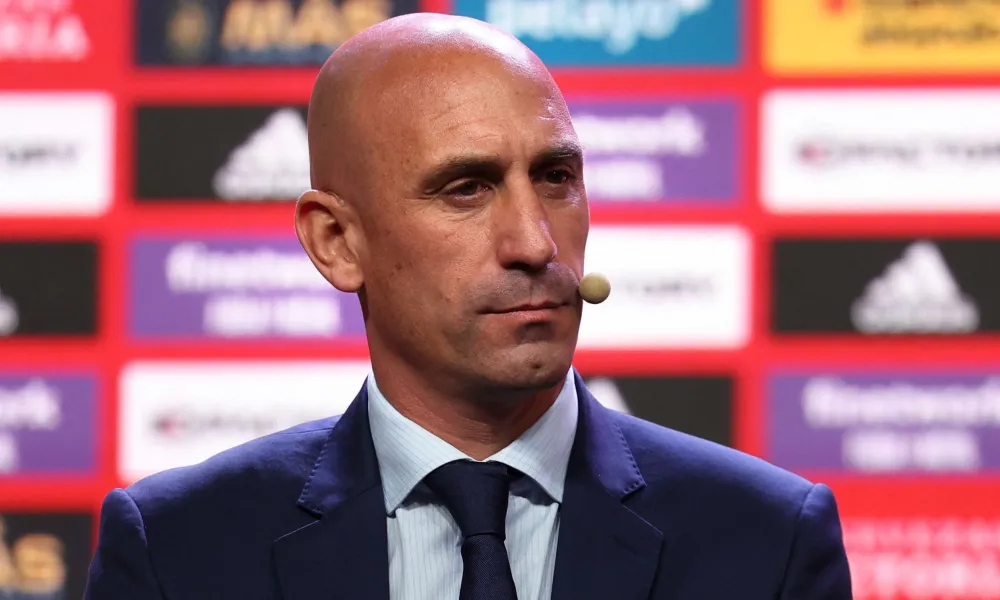The Spanish football community remains embroiled in a contentious saga surrounding Luis Rubiales, the figurehead of Spain’s RFEF football federation. In a significant turn of events, the Spanish government has escalated the ongoing investigation by providing additional documentation to a specialized sports tribunal. The tribunal, known as the Administrative Tribunal for Sport (TAD), is tasked with scrutinizing charges against Rubiales, triggered by a series of controversies, including a widely condemned incident involving a forcibly kissed female player during the Women’s World Cup.
The catalyst for this investigation was a troubling episode that unfolded during the Women’s World Cup final in Sydney on August 20. Rubiales, who has been under the spotlight for his position within the football hierarchy, garnered public ire for forcibly kissing Spain midfielder Jenni Hermoso on the lips during the medal-giving ceremony. The National Sports Council (CSD), operating under the Ministry of Sports, swiftly filed two complaints against Rubiales in connection with the incident.
The Spanish government’s response comes amid growing public concern and speculation. The documentation submitted to the TAD encompasses a range of perspectives, including statements from Jenni Hermoso, the Futpro women footballers’ union, and the Women’s Professional Football League. The objective is to provide a comprehensive insight into the various aspects of the incident.
Rubiales has vehemently defended his actions, characterizing the kiss as a “peck” and asserting its consensual nature. Despite calls for his resignation, he has remained resolute in retaining his position.
The controversy further deepened as Rubiales was captured on camera grabbing his crotch while celebrating Spain’s victory over England—an action that raised eyebrows and intensified scrutiny.
The complaints lodged by the government against Rubiales span allegations of “abuses of authority” and “notorious and public acts that undermine the dignity and decorum of sport.” If the TAD decides to proceed with the complaints, the National Sports Council holds the authority to suspend Rubiales within 48 hours, pending the tribunal’s ultimate verdict.
Beyond the national arena, the controversy has caught the attention of FIFA, resulting in a 90-day suspension for Rubiales during ongoing disciplinary proceedings. Meanwhile, Spanish prosecutors have initiated their own preliminary investigation into the incident, exploring whether Rubiales’ actions could potentially amount to “sexual assault” under Spanish law, which encompasses a spectrum of offenses from online abuse to rape.
As the investigation unfolds, the Spanish sports community remains on edge, closely watching the TAD’s deliberations. Amid criticism of the pace of proceedings, Sports Minister Miquel Iceta has emphasized the government’s commitment to meticulous adherence to legal protocols. The objective is to ensure that the investigation is comprehensive and thorough, aiming to avoid any potential procedural challenges or appeals that could protract the process.
With the intricate layers of the Luis Rubiales controversy continuing to unravel, Spain’s sports landscape finds itself at a crossroads, grappling with questions of ethics, conduct, and accountability.




